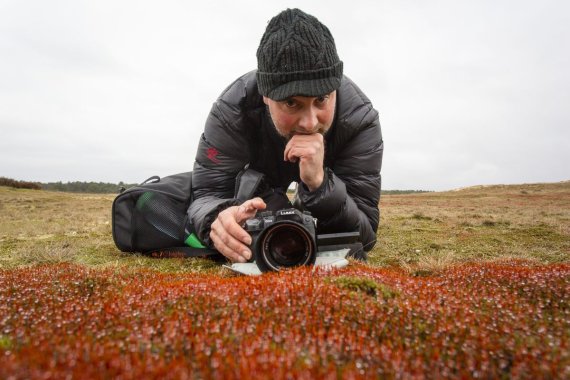The company is already collaborating closely with Wageningen scientists on new films and documentaries. ‘I’d been toying with the idea of setting up shop on campus for some time, says Smit, a Wageningen UR alumnus and former employee. ‘When the rector invited me to give a speech on Foundation Day, that confirmed me in my decision to put this plan into practice.’
He is following the example of the BBC’s documentary makers, who made a deliberate choice to be based near Bristol University rather than in London. ‘It’s to prevent us getting bogged down in the Dutch media scene in Hilversum and to get inspiration from my professional colleagues, because that’s how I see Wageningen’s scientists,’ explains the ecologist, who studied in Wageningen and got his doctorate there. Smit’s fellow workers in the Natural History Unit Nederland are Philippe Tammes and Melchert Meijer zu Schlochtern.
Smit makes films that focus on the relationship between individual animals while still presenting the bigger story of how ecosystems affect one another. Smit: ‘That holistic story is what I want to get across as an ecologist. Collaborating with Wageningen scientists lets us give a proper, substantiated explanation of the interactions between animals.’ The Natural History Unit Nederland is already working intensively with Wageningen scientists on its next big production, which is about life in and around the Wadden Sea. ‘This film will only be released in 2018 but nature films require a lot of preparation.’ The film makers discuss what unusual processes are found in nature, for example, with experts such as marine biologist Han Lindeboom, and when would be the best time to record these processes. Both the film makers themselves and Wageningen UR’s directors expect that being based on campus will facilitate access to the latest knowledge and insights.

